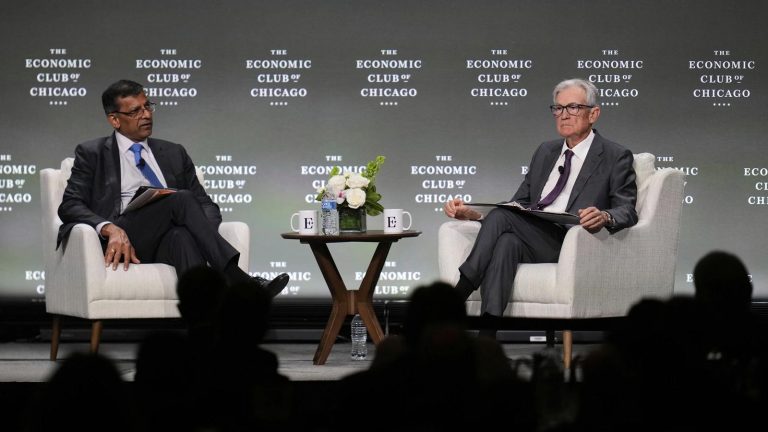
UK Cracks Down Hard on Hidden Fees and Fake Reviews | Image Source: www.theguardian.com
LONDON, United Kingdom, 6 April 2025 – As part of a historic consumer protection reform that has lasted for years, the United Kingdom has officially adopted legislation prohibiting two widespread but insidious practices in the digital market: hidden fees, commonly referred to as “price fixing”, and false online comments. The Digital Markets, Competition and Consumers Act 2024, adopted under the previous government, came into force today, starting a new era of transparency and fairness for British buyers and businesses.
The changes are intended to address the frustrations of long-time consumers – restaurant customers searched by five star reviews only to receive subpairs, to online buyers blinded by mysterious service charges added in the last second during the cashier. According to the Department of Business and Trade, British consumers lost about £2.2 billion a year because of these deceptive tactics. The new regulations promise to reverse this trend by ensuring that customers are no longer attracted to unannounced prices or misguided by misleading endorsements.
What exactly is Drip Price?
The price of drainage is a term that may seem technical, but it is a tactic almost all online buyers have known. This is when a company advertises a product or service at a very low price, only to deal with additional rates – booking rates, administrative fees, installation fees – later on the purchase trip. According to Alma Economics’ research for the Department of Business and Commerce, this practice is widespread in all industries: 46% of retailers were found to include at least one hidden quota in their cashier process.
The entertainment sector was particularly well known, with 45% of suppliers including mandatory “trained” fees. Holiday and hospitality businesses were not far behind 21%, while the retailer managed 3% relatively modestly, excluding delivery costs. What’s more frustrating? The average buyer had to click on ten or more web pages before reaching the final output screen, just to discover the real cost of what he was buying. According to the CMA, the entry price exploits the behaviour bias of consumers by locking them on a shopping path that becomes psychologically more difficult to leave.
What’s the change in the new law?
Digital markets, competition and consumers The law provides that all unavoidable costs must now be included in the holder’s price. This means that the price you see in advance for this concert ticket or the food to take away must already reflect any administration or booking fees. No more last minute surprises. For example:
- Delivery and admin fees for online food orders must be visible at the start of the transaction.
- Broadband installation costs must be integrated into the initial price quoted.
- Ticket websites must list all mandatory charges upfront.
However, the new law establishes a line: optional fares, such as seat updates or additional flight baggage, are still exempt. While consumer groups like who? and Citizens Advice welcomed the changes, they also called for a more in-depth examination of practices such as dynamic prices, which remain outside the scope of the law. In recent months, dynamic prices have caused indignation when fans looking for Oasis meeting tickets have seen prices increase from £135 to over £350.
Why are false criticism prohibited?
False criticism is not only a nuisance – it erodes consumer confidence and distorts competition in the market. A study conducted by the Department of Business and Trade in April 2023 revealed that at least 1 in 10 product reviews on third-party e-commerce platforms are likely fraudulent. Most are light soft drinks, strategically placed to incline scales in favour of sellers, regardless of the quality of the real product.
This manipulation is a great deal. Online journals influence about 90% of consumer purchases, contributing to a visual watering of 217 billion pounds in the UK in 2023 alone. Under the new law, companies are now legally responsible for revisions on their platforms. They must actively detect and eliminate false criticism and can no longer:
- Commission someone else to write a fake review.
- Hide negative reviews or cherry-pick only positive ones.
- Fail to disclose when a review has been incentivized.
What are the penalties for violating the law?
The legislation gives the Autorité de la concurrence et des marchés (AMA) strong enforcement powers. Criminals can be fined up to £300,000, or 10% of their overall turnover, which is higher. It’s a big enough penalty to force even large platforms to rethink their practices.
For repeat offenders, the consequences are even more serious. According to the agreement with Google, those who continuously publish false or misleading opinions for British companies will have their opinions deleted and will be prohibited from publishing them worldwide. Retailers who abuse the system will face:
- A prominent warning badge on their Google business profiles.
- Deactivation of review functions on their listings.
- Total review deletions for at least six months.
In addition, Google has committed to report on its progress on compliance with the CMA over the next three years. This level of liability is rare and reflects the seriousness with which regulators in the UK approach consumer protection online.
What do experts and defence groups say?
Consumer observers widely welcomed the crackdown. Citizens Advice describes the hidden accusations as “an ungrateful way to deceive consumers to pay more than they expect”, while what? has long called for the ban on hard prices, warning that they undermine consumer confidence and fair competition in the market.
“Today, consumers can make reliable purchases knowing that they are protected against false criticism and hard prices”
justin Madders, Minister for Employment, Competition and Market Rights. He stressed that reforms not only benefit consumers, but also help to “establish a level playing field by discouraging the wrong actors behind businesses”
The wave effect could be important. With Amazon already prosecuting false review corridors and decrypting inauthentic vouchers, the British movement could lead other global platforms to take stricter measures. Reforms also continue to be a growing concern in Brussels, where the European Court of Auditors recently examined complaints about the transparency of funding for non-governmental organisations, another case of regulatory bodies dealing with credibility and accountability in the public administration sectors.
What’s allowed?
Despite its broad scope, the new legislation leaves some areas intact. Optional addresses, such as hotel breakfast or air seat updates, remain legal, provided they are not mandatory. The same applies to dynamic prices, where the price is adjusted in real time according to demand. This issue is still under government scrutiny, and law firms like Stephens Scown have indicated that dynamic prices “are not automatically illegal by the DMCC or other consumer laws.”
This carve-out has its supporters. UKHospitality welcomed the exemption from optional taxes, citing the need for flexibility in price models that meet different consumer preferences. However, critics argue that optional tariffs can still cause confusion and push prices beyond what customers initially budgeted, a grey area that the government may need to review in future reviews.
How will these changes affect the digital economy?
In the short term, online companies may need to review pricing structures, review mechanisms and client engagement strategies to continue to comply. Although this may mean higher operating costs at the outset, long-term payment is confidence, an increasingly rare product in digital commerce.
Small businesses that have played all the time win. The reforms eliminate the unfair advantage enjoyed by dishonest competitors, favouring a more transparent market where value and quality gain from manipulation. For consumers, it’s a breath of fresh air – online shopping can now become a little less like navigating on a minefield and a little more like the honest transaction it was always supposed to be.
And for regulators, this is a decisive moment. With concrete tools, legal support and commitments at the platform level, implementation now coincides with the scale of the problem. But as digital commerce continues to evolve, today’s reforms must remain sufficiently dynamic to meet tomorrow’s challenges.
The British Government’s message is strong and clear: misleading practices will no longer be out of control. And in this war between convenience and manipulation, the consumer finally advances.



